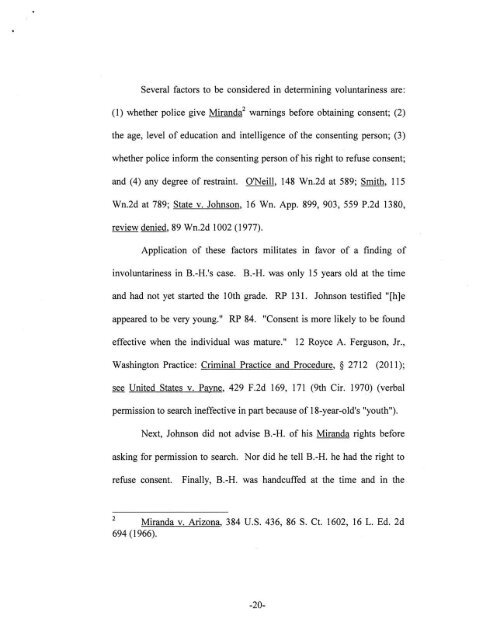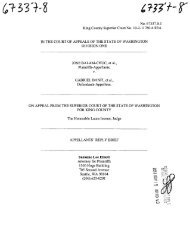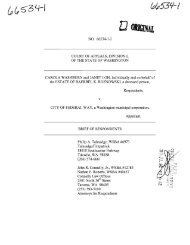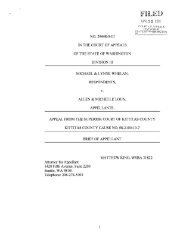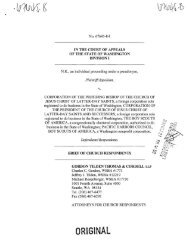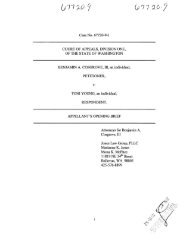Washington State Courts
Washington State Courts
Washington State Courts
Create successful ePaper yourself
Turn your PDF publications into a flip-book with our unique Google optimized e-Paper software.
Several factors to be considered in detennining voluntariness are:<br />
(1) whether police give Miranda 2 warnings before obtaining consent; (2)<br />
the age, level of education and intelligence of the consenting person; (3)<br />
whether police infonn the consenting person of his right to refuse consent;<br />
and (4) any degree of restraint. O'Neill, 148 Wn.2d at 589; Smith, 115<br />
Wn.2d at 789; <strong>State</strong> v. Johnson, 16 Wn. App. 899, 903, 559 P.2d 1380,<br />
review denied, 89 Wn.2d 1002 (1977).<br />
Application of these factors militates In favor of a finding of<br />
involuntariness in B.-H.'s case. B.-H. was only 15 years old at the time<br />
and had not yet started the 10th grade. RP 131. Johnson testified "[h]e<br />
appeared to be very young." RP 84. "Consent is more likely to be found<br />
effective when the individual was mature." 12 Royce A. Ferguson, Jr.,<br />
<strong>Washington</strong> Practice: Criminal Practice and Procedure, § 2712 (2011);<br />
see United <strong>State</strong>s v. Payne, 429 F.2d 169, 171 (9th Cir. 1970) (verbal<br />
pennission to search ineffective in part because of 18-year-old's "youth").<br />
Next, Johnson did not advise B.-H. of his Miranda rights before<br />
asking for pennission to search. Nor did he tell B.-H. he had the right to<br />
refuse consent. Finally, B.-H. was handcuffed at the time and in the<br />
2<br />
Miranda v. Arizona, 384 U.S. 436, 86 S. Ct. 1602, 16 L. Ed. 2d<br />
694 (1966).<br />
-20-


